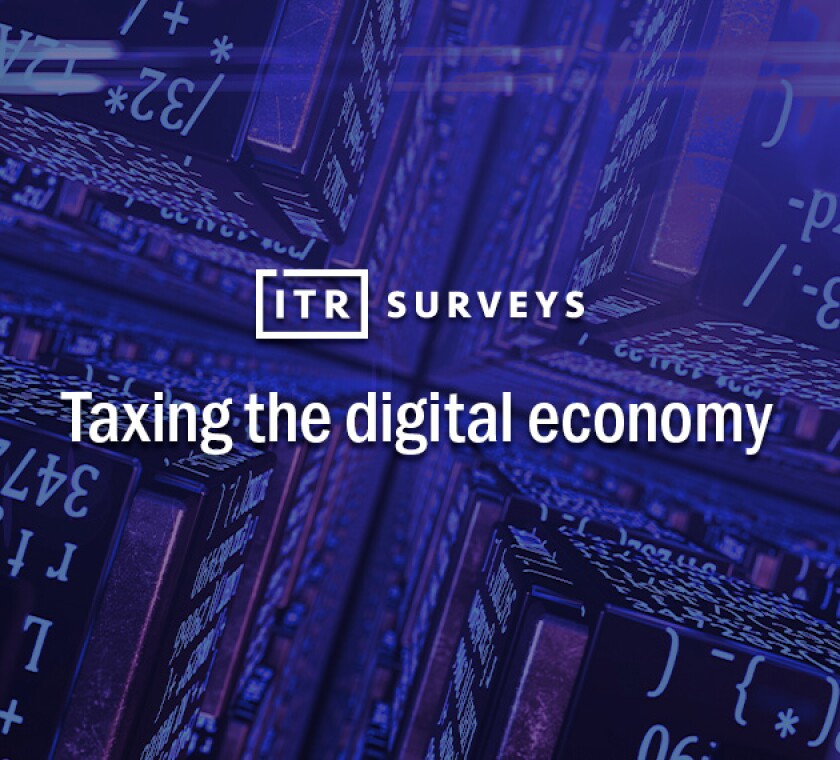Take ITR’s survey here on how the OECD’s two-pillar tax solution is changing the digital economy, and what could happen next. Your answers will be kept strictly anonymous.
Taxation of the digital economy is evolving fast – 133 countries agreed to a detailed statement of understanding from the OECD’s Inclusive Framework (IF) on BEPS regarding key details on pillar one and two, and a final implementation plan is expected in October. This suggests the OECD’s solution is highly likely to find a consensus by the deadline, and it means that countries will need to adopt legislative changes by 2023.
The OECD solution revolves around two significant changes to international tax policy: the reallocation of taxing rights to market jurisdictions under pillar one, and a global minimum corporate tax under pillar two. G20 leaders have said that delaying, or even discontinuing, this work will lead to a global trade war, because the alternative option is a patchwork of unilateral digital services taxes (DSTs) across IF countries.
The US Biden administration has been particularly influential in advancing the digital tax negotiations at the IF in recent months, including on the proposal for a 15% tax rate floor on pillar two. Some in-house tax directors are already thinking about the practical implications of a global minimum corporate tax, such as the impact on investment inflows and outflows.
However, several technical details remain unclear, such as the scope of the proposals or the challenges of using financial accounts to determine country-by-country effective tax rates. Additionally, political challenges such as push-back from some countries and conditional expectations from others could limit the effectiveness of the OECD’s two-pillar solution.
In this fast-moving and politically contentious area of tax, there are many questions. Will the economic effects of the COVID-19 pandemic continue to prompt governments to move faster on digital tax reform, including removing DSTs? Which sectors will bear the brunt of reform? What changes can in-house tax directors expect in the coming years?
With your help, we hope to answer some of these questions. Please complete our anonymous survey here to share your predictions – and look out for the results in ITR’s autumn edition.
For further details, or to share your opinions with the editorial team, email mailto:danish.mehboob@euromoneyplc.com











